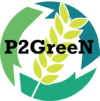P2GreeN pilot regions
Gotland - Sweden
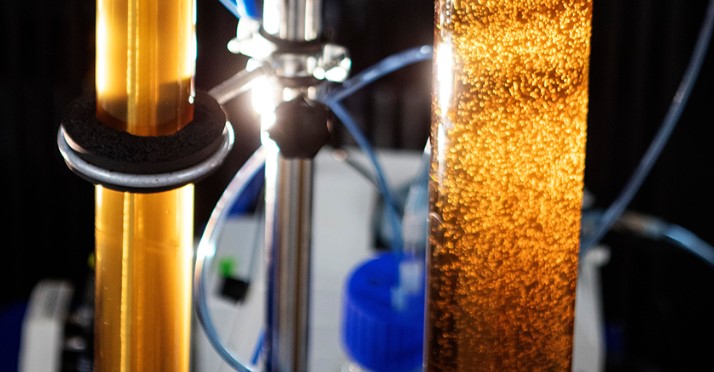
Gotland - Sweden
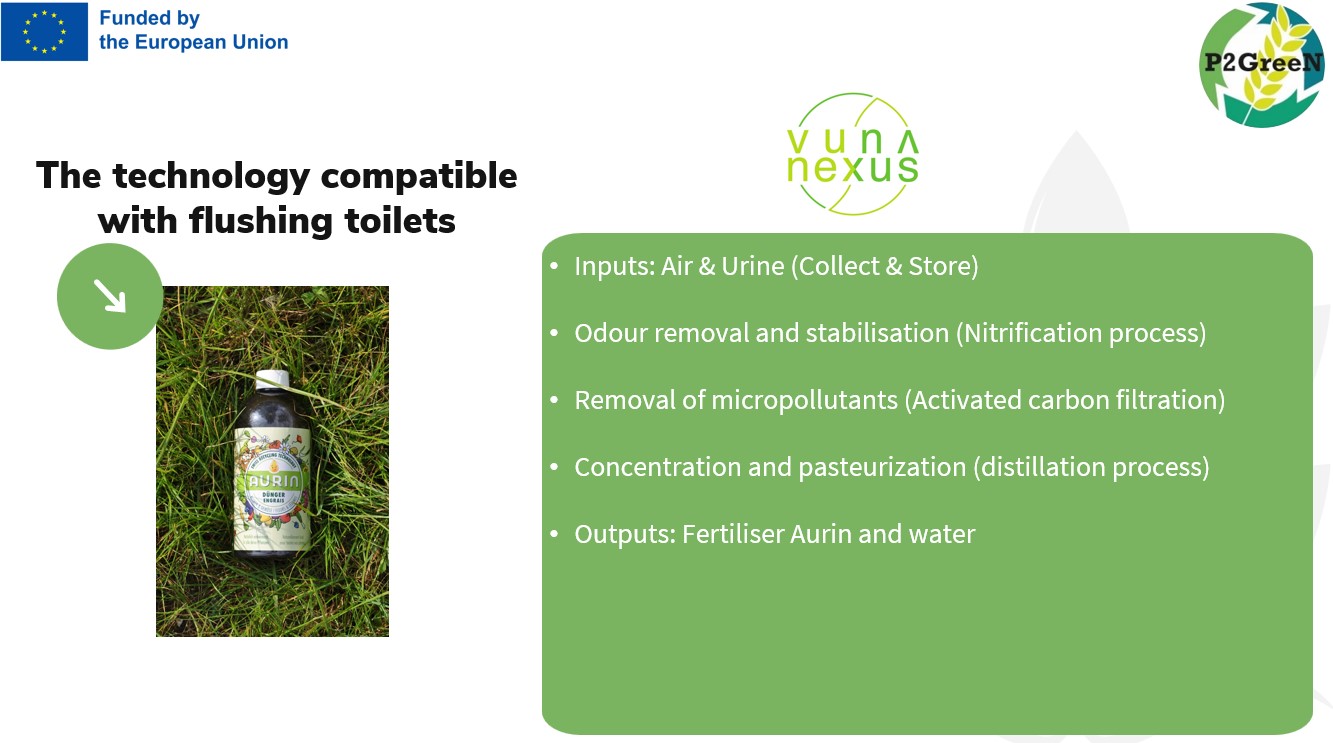
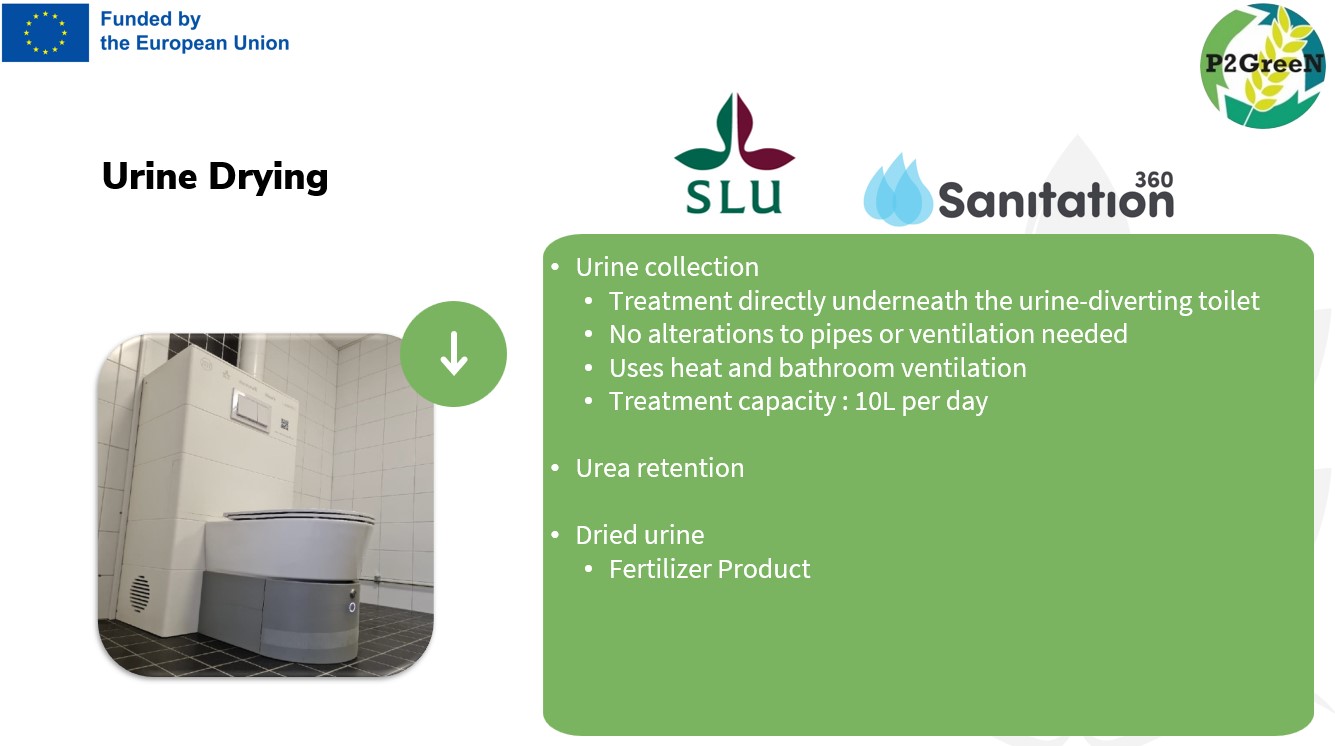
Metropolitan Region of Hamburg-Hannover
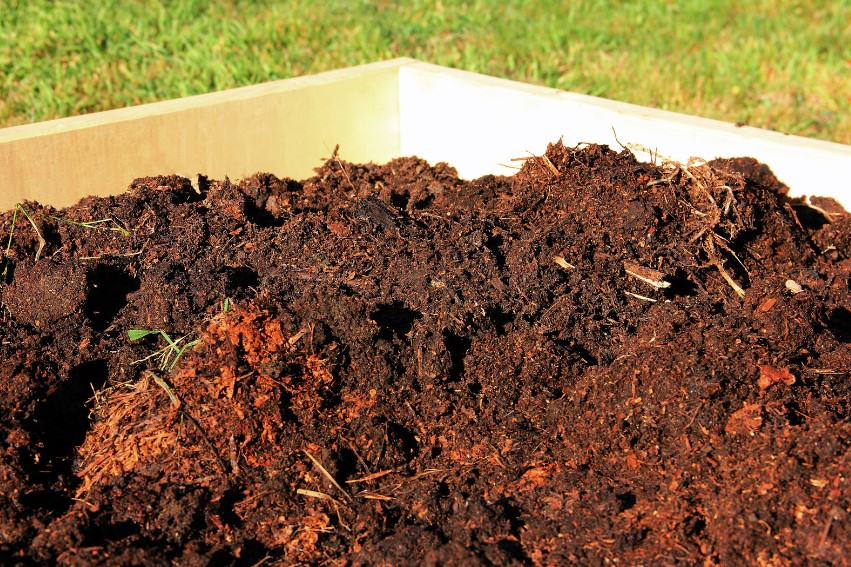
Metropolitan Region of Hamburg-Hannover
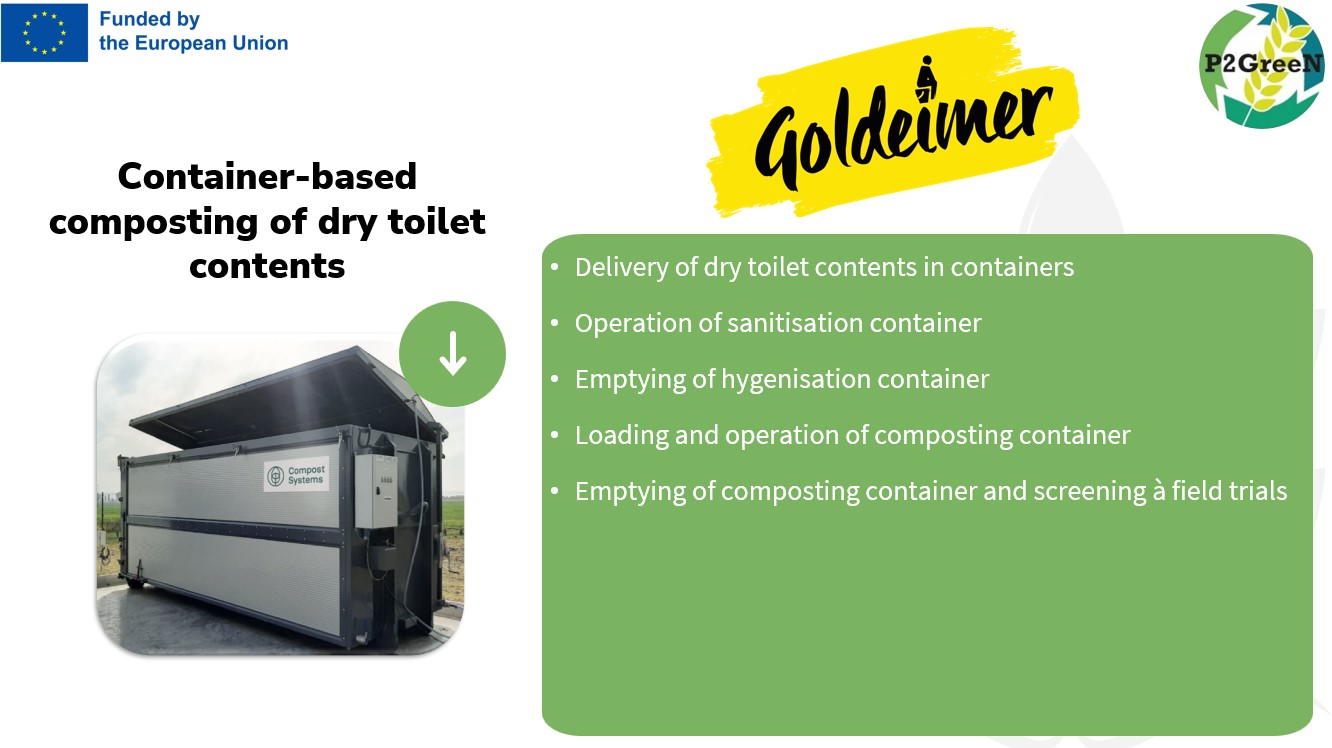
The Axarquia region in Malaga (Spain)
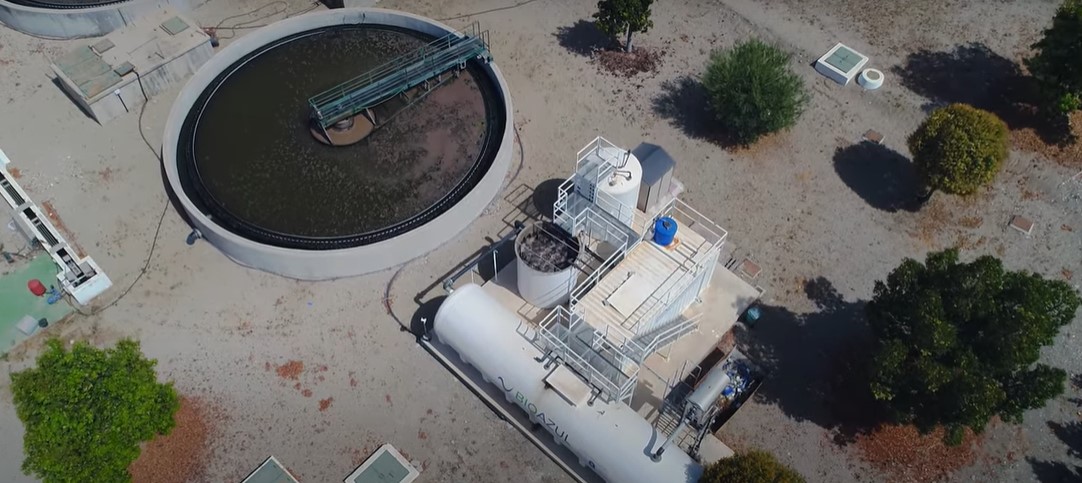
The Axarquia region in Malaga (Spain)
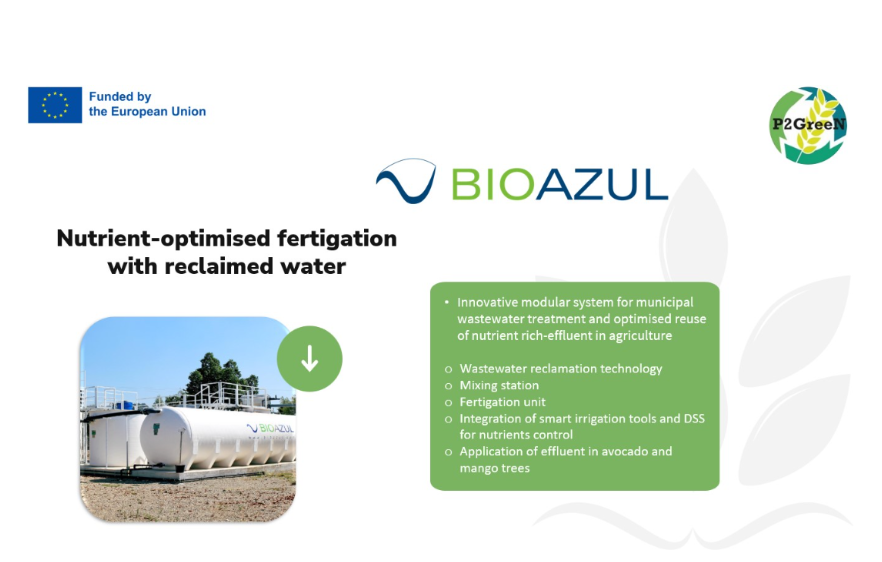
- Gotland - Sweden
- Metropolitan Region of Hamburg - Hannover
- The Axarquia region in Malaga- Spain
Gotland Pilot Region, Sweden
In the Swedish pilot region, urine is gathered from toilets and urinals during events. Subsequently, a urine reclamation process is employed to produce bio-fertilizer in pellet form.
The process involves:
- Use of a urine stabilizer for nutrient retention and odour control.
- Employing a uniquely designed drying system that concentrates the urine and thereby increases the nutrient concentration (factor > 25x) to an NPK (nitrogen, phosphorus, potassium) ratio of 15-2-4.
- Blending and drying to produce solid fertilizer pellets that can be used with conventional farming equipment.
General objectives of this pilot region:
- Demonstration of full-service chain.
- Optimization of nutrient cycle and use.
- Avoidance of diffuse pollution and reduce eutrophication.
- Raising awareness and capacity building with municipalities, farmers, the general public and other key stakeholders.
The reclamation potential of this process is estimated at 900 kg of nitrogen and 90 kg of phosphorous per year. Furthermore, the pilot aims to obtain 150 m3 of urine by the end of 2026. The resulting biofertilizer, rich in nitrogen and phosphorus, is then used to grow barley. Gotlands Bryggeri, a key partner, subsequently utilizes the barley to produce beer, establishing a sustainable and circular approach to resource utilization and production.
Hamburg – Hanover, German Pilot Region
In the German pilot region, fertilizer creation involves two distinct pathways. After urine and fecal waste collection by Goldeimer, the liquid waste undergoes processing by VunaNexus, while Goldeimer manages solid waste.
The Urine Process Involves:
- Urine storage and hydrolysis.
- Biological treatment for urine nitrification, transforming ammonia to nitrate and eliminating odor.
- Filtration on activated carbon to remove micropollutants.
- Sanitization and concentration through distillation.
For Composting, the process includes:
- Sanitisation in aerated container: microbial activity facilitates temperatures of >65°C for >7 days and eliminates pathogens.
- Composting: De- & Recomposition of solid matter mixed with additional bulk material by automated auger to produce a soil nurturing recycling-fertiliser.
- Screening of inadequate material.
This pilot region can reclaim approximately 1140 kg of Nitrogen and 320 kg of Phosphorus per year. After the liquid fertilizer and compost are produced in the German pilot region, Vagtshoff, utilizes the biofertiliser to cultivate rye and barley.
This agricultural practice promotes sustainability in the long run by:
- Reducing drinking-water consumption for toilet flushing.
- Mitigating nitrogen (N) and phosphorus (P) emission to water bodies.
- Local recycling of resources from sanitary waste by recovering nutrients and carbon for bio-based fertilizers.
- Targeted removal of micropollutants from source-separated sanitary waste
- Decreasing operating costs of wastewater utilities, energy consumption, and wastewater discharge.
Partners involved:
- Goldeimer: dry toilet service provider and operator for solid faecal matter composting.
- Vagtshoff: sustainable farming operator
- VunaNexus: technology provider for urine nutrient reclamation and fertiliser producer.
The Axarquia Andalucia pilot region, Spain
The Spanish pilot region in The Axarquia, Spain, employs water reclamation technology and a smart irrigation system. Firstly, treated wastewater is collected from the municipal wastewater treatment plant (WWTP) of Algarrobo and it is further treated with a water reclamation plant utilizing disc filtration and ozone disinfection. This advanced treatment ensures the removal of pathogens and contaminants, transforming the wastewater into a nutrient-rich effluent. This process can produce 3650 m³ of reclaimed water per year. Reclaimed water is then used to fertigate the avocado and mango crops and, if needed, it is supplemented by mineral fertilizers or diluted with local water, under the control of an innovative smart fertigation tool (SFT). In this sense, the SFT provides information on the level of main nutrients and elements in the soil that most affect the development of crops, fostering a sustainable and circular approach to nutrients and water resource utilization in the region.
General objectives of this pilot region:
- Demonstration of water reclamation treatment system.
- Optimization of nutrient cycle and use.
- Integration with Smart Irrigation tools.
- Avoidance of diffuse pollution and reduce eutrophication.
- Awareness raising and capacity building with farmers and key stakeholders.
Partners involved:
- BIOAZUL: Serves as the pilot coordinator and technology provider for wastewater reclamation. They oversee and facilitate the implementation of the water reclamation plant.
- TROPS: Cooperative of farmers that serves as a technical advisor on crop management. They ensure the integration of reclaimed water into agricultural practices, particularly for avocado and mango cultivation.
- CETAQUA: Water research center analyzing collected data. Their expertise contributes to the monitoring and assessment of the effectiveness of the water reclamation process.
- AgriSmartData (ASD): Software developer specializing in the optimization of nutrient balance and decision support systems. They develop and utilize of the smart irrigation tool for managing nutrients and irrigation efficiently.
- AXARAGUA: Public operator of the municipal wastewater treatment plant (WWTP) of Algarrobo. They ensure the availability of wastewater feedstock for the water reclamation process.
